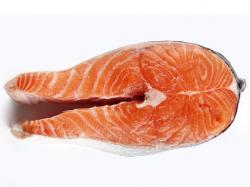B.C. Salmon Farmers Grow Sustainability Efforts To Meet Demand
September 25, 2014 | 3 min to read

VANCOUVER, B.C. – B.C. salmon farmers are celebrating Aquaculture Awareness Week, September 21 – 27, by reaffirming their commitment to sustainability. By 2020, B.C. aims to be the first region in the world to be certified by ‘Gold Standard’ environmental programs, which includes having all farm-raised Atlantic salmon certified to the standards set out by the Aquaculture Stewardship Council (ASC). Currently, less than five per cent of the world’s salmon farms have met this stringent standard.
“The commitment of salmon farmers in British Columbia to be held to the highest environmental and social responsibility standards is of the utmost importance in driving improvements in aquaculture,” said Jose Villalon, board member and founding chair of the ASC. While leading the aquaculture program at the World Wildlife Fund (WWF), Mr. Villalon spearheaded the Aquaculture Dialogues that resulted in the creation of the ASC. He was part of the team that developed the ASC standard and will be speaking at an Aquaculture Awareness Week event at the Vancouver Aquarium. During Mr. Villalon’s presentation, Securing Food for the Future, he will be providing insights on the global issue of sustainably ensuring food supply for a rapidly growing world population.
Today, over 50 per cent of the world’s seafood is farmed, with projections showing this figure will explode to 75 per cent in just 15 years. B.C. is the first and only salmon farming region to have all of its Atlantic salmon certified by the Global Aquaculture Alliance Best Aquaculture Practices program. The province is already home to North America’s first certified organic Chinook producer in Creative Salmon, and West Coast Fishculture’s Lois Lake Steelhead is recognized by the Vancouver Aquarium’s Ocean Wise program.
“We’re in the midst of a ‘blue revolution’ where the demand for farmed seafood is growing alongside the world population. With wild fisheries around the globe already over-fished, farm-raised salmon is needed to meet the increasing demand for lean, heart-healthy proteins,” said Jeremy Dunn, Executive Director of the BC Salmon Farmers Association (BCSFA). “The challenge, however, with intensified salmon farming has always been preserving the natural environment and growing the industry in a sustainable way. The salmon farmers of this province are committed to the communities in which they operate, the people they employ, and the integrity of the food they produce.”
As the industry looks to sustainably and responsibly grow, they look do so with the support and partnership of the First Nations whose traditional territory they seek to operate in. This is exemplified by new site applications underway with both the Ahousat First Nation in Clayoquot Sound and the Tatlasikwala First Nation on Hope Island. Currently, B.C. salmon farmers are partnering with coastal First Nations on 17 economic and social partnerships.
The province’s salmon farmers are also working to protect the environment through ensuring further research is conducted to know more about wild salmon and that data is analyzed in an objective and transparent manner. The Association stands behind the recommendations in the federal government’s Cohen Commission of Inquiry into the Decline of Sockeye Salmon in the Fraser River, including the call for more research on the marine environment
About the BCSFA
Farm-raised salmon is B.C.’s highest-valued agricultural export with almost $300-million in value exported each year. Salmon farming in B.C. provides 6,000 direct and indirect jobs while contributing over $800-million annually to the provincial economy. The BCSFA represents the province’s vibrant salmon farming industry through its members – salmon farm companies and the businesses that proudly provide services and supplies to B.C.’s salmon farmers.
For more information visit BCSalmonFarmers.ca
Source: BC Salmon Farmers Association
